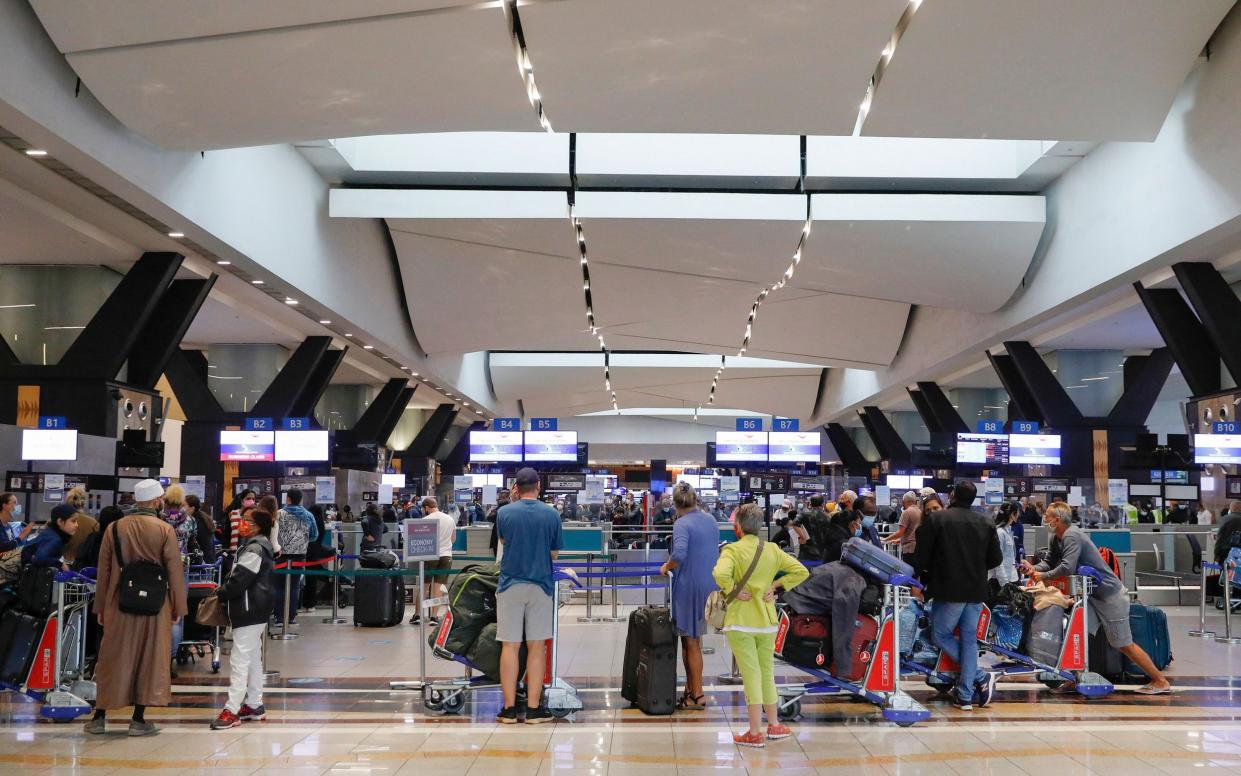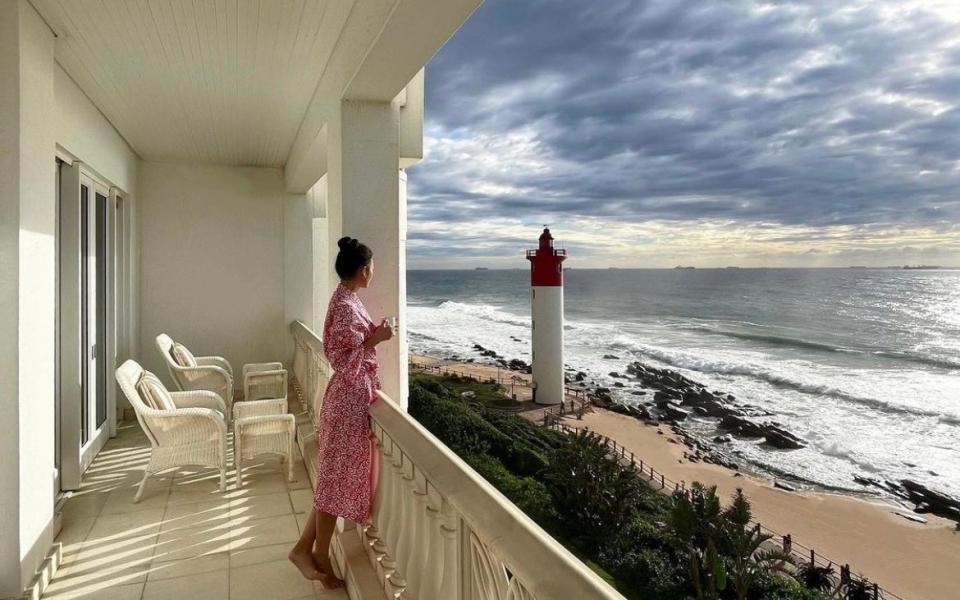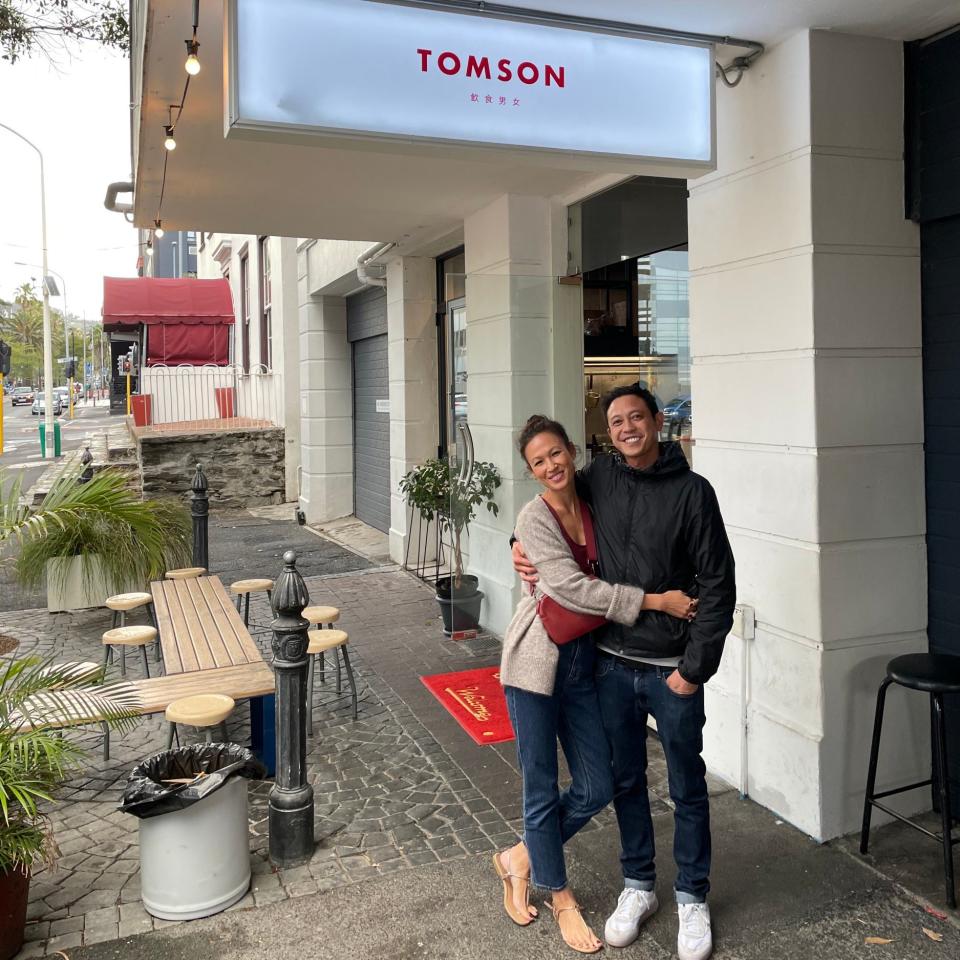'I saw people jumping barriers for the last UK flight back from South Africa'

When my phone first started insistently buzzing, it was well past midnight and I was asleep, happy to be back in my [native] South Africa, after two long years of separation from family and friends. At first I ignored it, but when I finally checked, there were dozens of tests and messages. “If you want to get out of there, you need to sort this out now,” stated one from my husband.
Bleary eyed, I began to calculate the logistics of beating the red list. I had just over 48 hours. The race was on.
It was not how I’d envisaged my trip panning out. We all know that travel has not exactly been a breeze over the past couple of years. But things started to look up in October when the UK’s complicated traffic light system was scrapped and the remaining countries on the red list were removed. South Africa, especially jumped for joy as this meant Britons could finally visit without being subjected to a battery of PCR tests, nor a 10-day quarantine in a government-approved hotel upon their return. It was a long time coming and a much-needed boost to the country’s tourism industry.
For me, this meant a long-awaited reunion with my family. And so, on the morning of November 11, my Qatar Airways flight touched down in Johannesburg at an unusually quiet O.R Tambo International Airport, where my parents – as always – were eagerly awaiting my arrival.
Over the next few days, I made up for lost time. I hung out with friends and family, dined at restaurants I had missed, flew to Cape Town where I did more of the same and then headed to Durban where I reunited with my sister and her family. Things were finally beginning to feel normal again. Then just 13 days into my trip, news started to emerge of a new variant. “This is not looking good,” said my dad, who had also just recently purchased air tickets for him and my mum to spend Christmas with me in London.

How right he was. A few hours later, the news broke that South Africa was being added to the UK’s red list.
Unbelievably, in the dead of night, I got through to the Qatar Airways call centre almost immediately and was told that yes, there was a seat on the next flight to London, but unfortunately business class was full and it would cost me around £200 for the pleasure of downgrading. Not ideal. But as a friend later said: “any class is better than ‘borders-are-closed’ class.”
Getting back to Johannesburg also meant hopping on the next flight out from Durban. So, after a manic packing session, I woke my very bewildered family to tell them I was leaving. It was six o’clock in the morning and just the beginning of my 35-hour slog back to London.
This time, the atmosphere at O.R Tambo International Airport was decidedly more frenzied, the check-in queue filled with overwrought passengers and overweight luggage. Including me. Apparently my business class baggage allowance from my previous ticket did not transfer and, once again, it cost me another £50 for the pleasure of downgrading.
The security and passport queues were crowded and chaotic. Last-minute health forms needed to be filled out and travellers were baffled and more than a little sorrowful. “I flew out here for my grandmother’s birthday, which I am going to miss now anyway,” I overheard one young woman saying to a fellow passenger. Elsewhere, especially among the South Africans, there was a general sense of anger: “I hate that just because SA has the best epidemiologists, who take the time to study and report new variants, we end up being labelled as the source of these variants,” declared another passenger irritably.

Overall, though, there was a sense of solidarity, as travellers invited each other to tag along as their plus ones to gain access to Doha’s business class lounge during the layover. If only. On arrival at Hamad International Airport, we were – without explanation – escorted off the plane, past the usual transfers route, to an empty area of the airport that I can only describe as a holding pen. Our temperatures were checked and those with immediate ongoing flights were escorted directly to their gates. The process was disorganised. Many of us were now on hour 15 of our journeys and the atmosphere was fraught. So much so, one man tried to jump the barriers and make a run for it. He didn’t get very far. Eventually, those with business class tickets or British Airways Gold Cards (like me) were released and escorted to the lounges – a move which one passenger noted to the officials, defeated the point. I kept silent, grateful to be able to have somewhere to shower, lie down and get at least a couple of hours’ sleep.
While scientists in South Africa were the first to discover the new variant, it does not necessarily mean it originated from there. By any measure, the country has done an exceptional job at researching and disclosing new variants and there needs to be a system in place to ensure no one is penalised for future announcements. The speed at which the new restrictions were put in place has not only left many travellers stranded without warning, but shutting borders has meant another blow to the country’s already battered tourism industry. There might not be a right answer to all of this, but there should be a procedure in place to allow solidarity in tackling the pandemic together.
I am now on day two of my 10-day at-home quarantine and all the drama aside, my long-awaited trip to South Africa might have ended abruptly, but it was wonderful to be back and to see my family at a time when I don’t take anything for granted.


